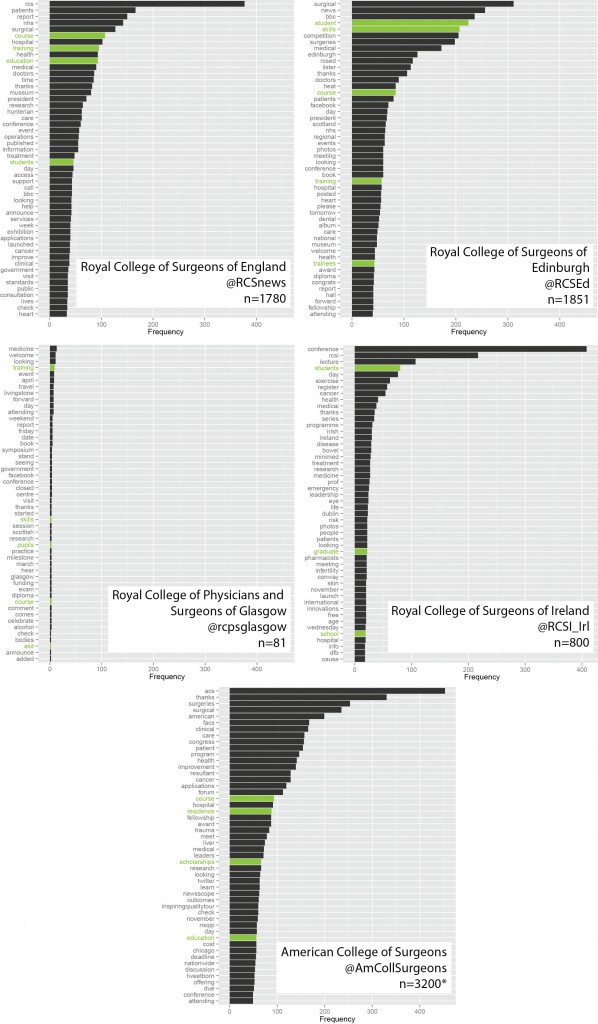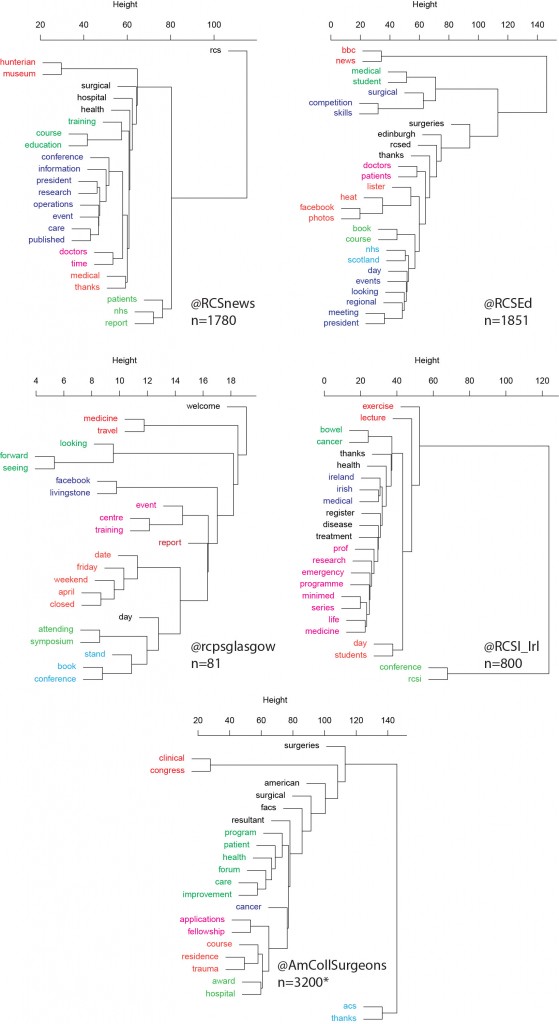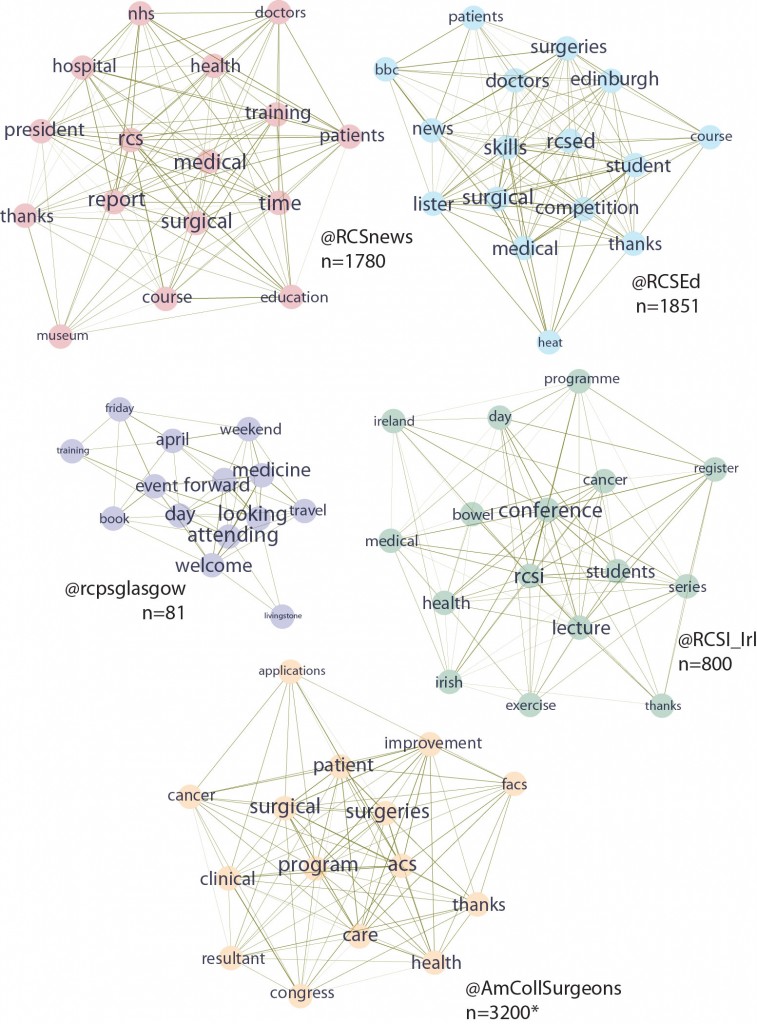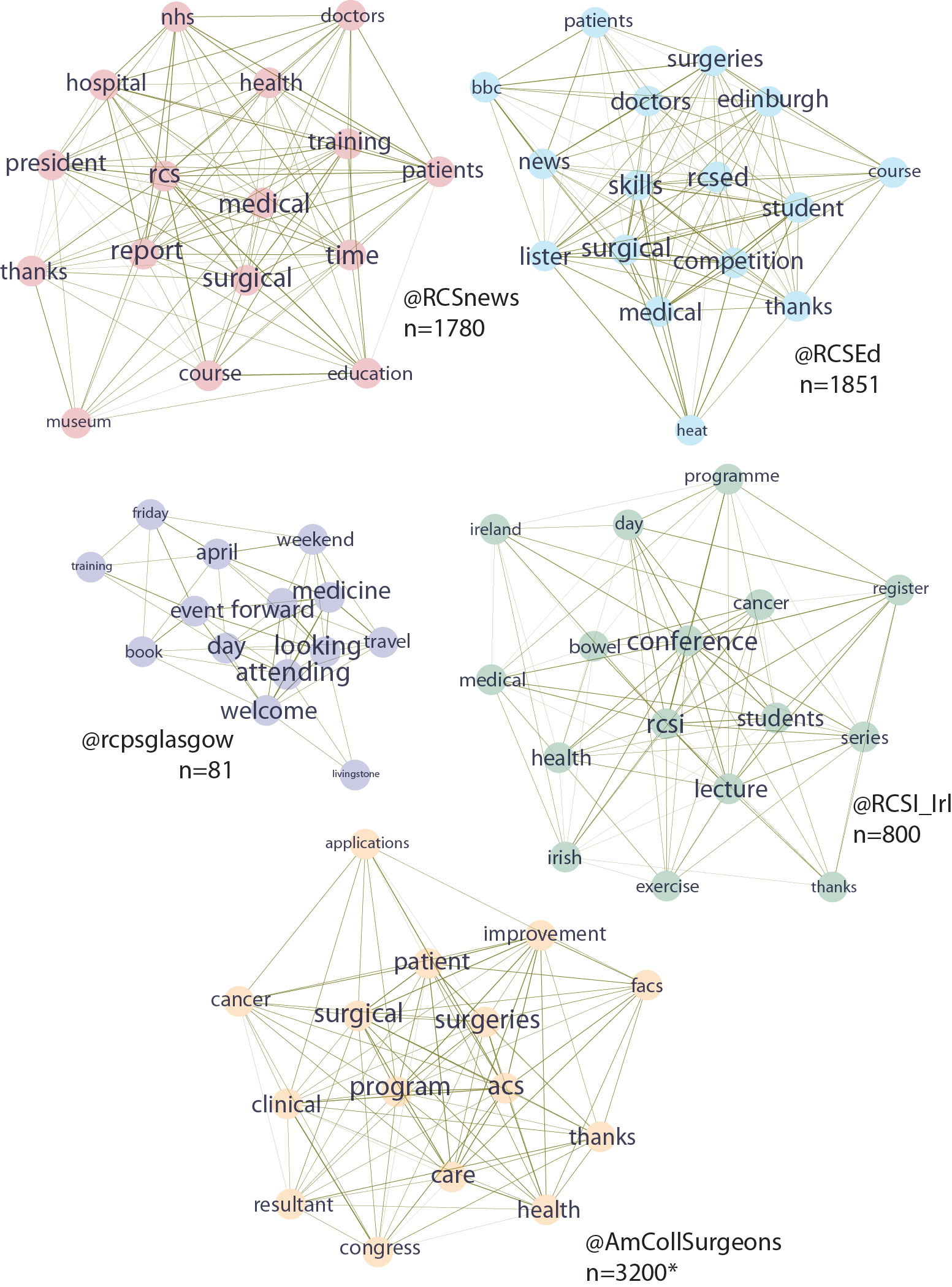What do the UK and Ireland Surgical Royal Colleges tweet about and how do they compare to the American College of Surgeons?
Twitter allow retrieval of the last 3200 tweets of a given user. Here are all tweets ever sent by the Royal Colleges a few days ago. The American College has tweeted over 6000 times, so only the latest 3200 are included. The Glasgow College is just getting going.
There is a bit of processing first. Charts are generated after removal of “stop words” – all the little words that go in between. Words then have common endings removed (e.g. -ing; stemming) and the most common ending for the group replaced (stem completion).
So what can be said? I was interested in whether Colleges tweet about training. I was pleased to see that the UK colleges do – a fair amount. Terms that are associated with training were less apparent in tweets from the RCSI and ACS.

The figures below show clustering of terms within tweets, with term frequency increasing from left to right. There are some nice themes that emerge. In the RCSEng tweets there are themes relating to “training”, “events”, “working time”, and “the NHS”. Similar subjects are apparent in RCSEd tweets, with prominence of their medical students surgical skill competition and issues specifically relating to the NHS in Scotland. As the RCPSG have only started tweeting, associations are greatly influenced by individual tweets. The RCSI’s “Transition Year Mini Med School Programme” “MiniMed School Open Lecture Series” (updated 22/04/13) can be seen together with conference promotion. The ACS appear to use Twitter to communicate issues relating to patient health improvement programmes more prominently than other Colleges.

Network plots illustrate the strength of association of terms (weight of edges) and frequency of terms (font size of vertices). Do the terms in these plots represent the core values of these organisations?




HI Ewen,
this is is fascinating. Have you excluded the re-tweets and the thanks for retweets. I have noticed that these form a lot of the tweet noise of some of the colleges and including them may distort your analysis in terms of whether what you tweet represents your values. You could also express the data in terms of a wordle for each college http://www.wordle.net this would also relate frequency to size in a less elegant but more artistic (?) way.
Your analysis also fuels one of my spelling nazi prejudices that “surgeries” is becoming a neologism in the specialty of surgery. The plural of the practice of surgery to my mind is surgery. The plural of for example GP’s or members of parliament surgery is indeed surgeries.
Sometimes I think we both need to get out more….
Hi Steve,
Definitely need to get out more!
So here’s the geeky answer. Native re-tweets were introduced in 2009, where you hit the re-tweet button and can’t alter the text. These are exluded. Prior to 2009, to re-tweet twitter just put RT @name at the beginning of the tweet, which could be altered. These are not excluded. Would be a good idea.
Names after @, text after #, text after http and the abbreviations RT/MT have been removed.
Thanks tweets tend to be “thanks @name”. The term “thanks” remains as can be seen, @name is removed.
Totally agree about “surgeries”. Here, “surgeries” represents “surgeries” + “surgery” due to the stem removal, so appears artifically prominent.
Ok, going out!
Hi Ewen, very interesting data analysis!
Could I ask what specific time period this data was analysed?
Many thanks,
RCSEd Comms
All tweets on @RCSEd ever made were retrieved.
First: 02-06-2010 09:53:37
Last: 12-04-2013 08:38:37